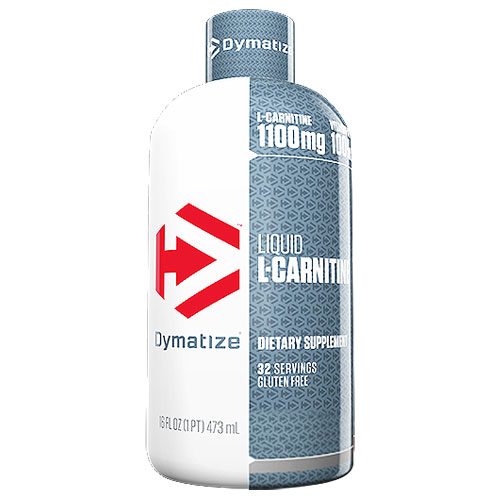Bodybuilding, Powerlifting, Supplements, and Equipment Super Store!

L-Carnitine is a derivative of the amino acid, lysine. Its name is derived from the fact that it was first isolated from meat (carnus) in 1905. Because L-carnitine appeared to act as a vitamin in the mealworm (Tenebrio molitor), it was called vitamin BT. Vitamin BT turned out to be a misnomer when scientists discovered that humans and other higher organisms synthesize L-carnitine. Under certain conditions, the demand for L-carnitine may exceed an individual's capacity to synthesize it, making it a conditionally essential nutrient.
L-Carnitine is synthesized primarily in the liver and also in the kidneys, and must be transported to other tissues. It is most concentrated in tissues that use fatty acids as their primary dietary fuel, such as skeletal and cardiac (heart) muscle. In this regard, L-carnitine plays an important role in energy production by chaperoning activated fatty acids (acyl-CoA) into the mitochondrial matrix for metabolism and chaperoning intermediate compounds out of the mitochondrial matrix to prevent their accumulation.
Studies have been conducted on L-carnitine since the early 1900's. They show that the body's cardiovascular system can benefit greatly from its useage. The FDA has approved L-carnitine under the name Carnitor for use in treating heart disease and low energy levels. Also, there are a variety of published studies that show L-carnitine is useful in increasing the heart's output and improving it's functioning, as well as stimulating the heart's energy supply and improving cardiac performance. Moreover, some experts have shown it increases endurance and helps regulating heart arrhythmia.
Oral L-carnitine is available by prescription for the treatment of primary and secondary L-carnitine deficiencies. It is also available without a prescription as a nutritional supplement here at MuscleSports.net. Supplemental doses usually range from 1000 mg to 2,000 mg/day.
Acetyl-L-carnitine is available without a prescription as a nutritional supplement. In addition to providing L-carnitine, it provides acetyl groups, which may be used in the formation of the neurotransmitter, acetylcholine. Supplemental doses usually range from 1000 mg to 2,000 mg/day.
Conclusion: In general L-carnitine appears to be well tolerated. Toxic effects related to L-carnitine overdose have not been reported. L-carnitine supplementation may cause mild gastrointestinal symptoms, including nausea, vomiting, abdominal cramps and diarrhea.
Realted Pages: